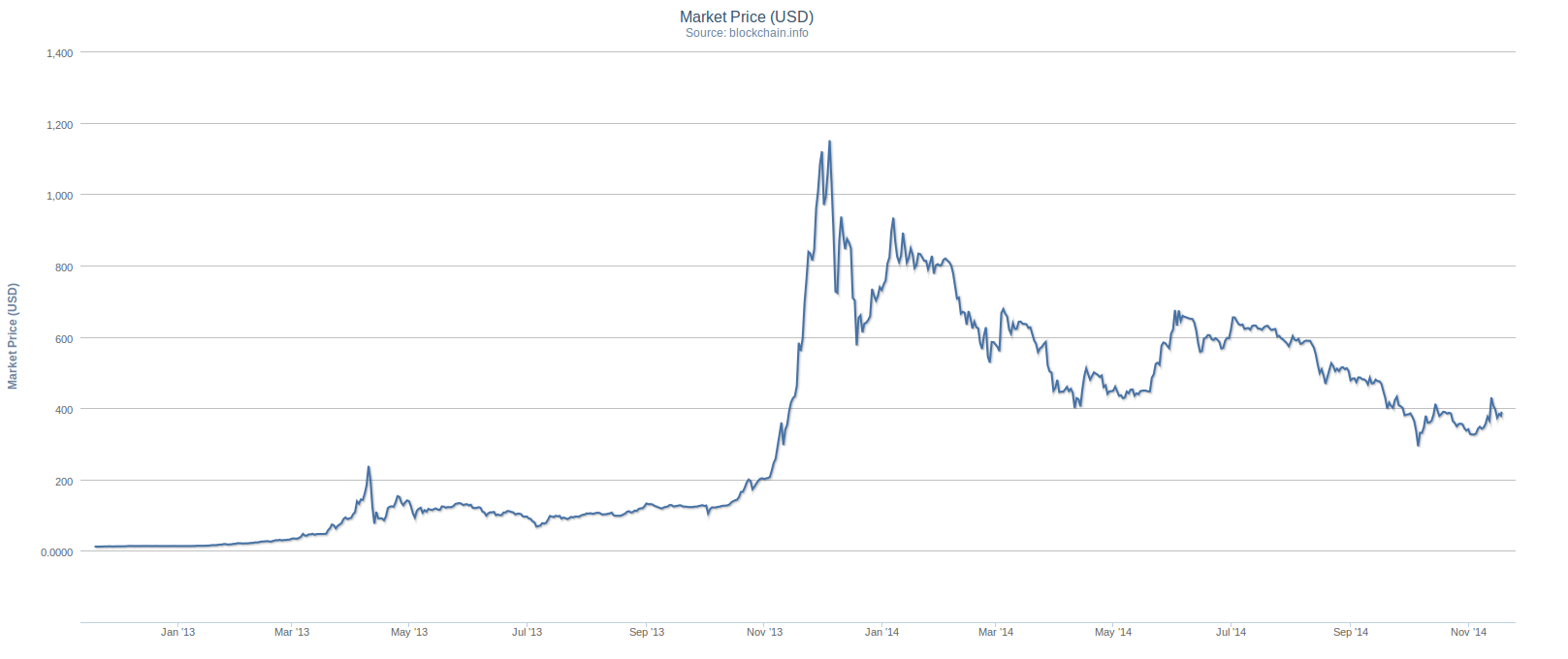2013 was an eventful year for the black market, with Silk Road (and now Silk Road 2.0) having been seized by the federal government, substantially impacting the value of bitcoins relative to the U.S. Dollar (although the vast majority of bitcoins are used in legal transactions). That, in addition to other developments in cyberspace including the government’s involvement in surveilling and controlling it, has gotten me interested in the underground economy, how it works, along with the involvement of the government and seemingly legitimate private organizations. I’ve started to educate myself with Andrew Feinstein’s book on the global arms trade, but before that I would like state some of my naive assumptions about the way the black market works, and then maybe come back to this in a few months’ time once I’ve learned a little bit more.
The Black Market Exists Because Demand is Left Unsatisfied in Conventional Markets
Simply put, people want goods that aren’t available from legally authorized markets. People want drugs. They want pirated media and counterfeit goods of name-brand products. Vengeful lovers want murders carried out on their behalf and curious individuals might want to try some products from countries currently under economic sanctions.
The Absence of Property Rights Leads to Organized Crime
The threat of punishment by the authorities, in tandem with government control over conventional routes of transportation deters everyone but the most die-hard suppliers from reaching their customers. This government-induced scarcity causes prices of some illicit good or services to be thousands of times more than what they would otherwise be in the absence of government restriction. The high price drives those who are the most willing to risk punishment to take extreme measures to make markets.
Unlike suppliers of legal goods, black market suppliers do not receive government protection via property rights. This creates the need for black market businessmen to raise their own private armies to protect their own inventory along with their supply chain affiliates – this leads to the formation of quasi-governmental entities that are commonly known as gangs, or drug cartels. If you think about it, protection money is kind of like taxes – in exchange for a payment, you will be protected by the gang. If you fail to pay up, you’ll get your property sacked and your kneecaps broken. Likewise with taxes, in exchange for a payment you will be protected by an army. If you fail to pay up, you’ll either go to jail, face garnishment of wages, or both. So a gang is, in a way, a de-facto government overseeing the market for whatever illegal good or service it sells. The lack of property rights creates a huge incentive for rival gangs to fight over control of the market, as consolidation would allow them to further control prices via monopoly power. Now, you might ask, why then aren’t Dell and Lenovo raising their own private armies and blasting each other to smithereens to gain control over the computer industry? The reason is that it’s too expensive – computer prices simply aren’t high enough to justify the cost of raising an army and going to war, because the production, transport, and sale of computers aren’t restricted by the government. In other words, there’s no artificial scarcity with respect to computers.
Violence as a Symptom
You might have heard that buying drugs and counterfeit goods supports violence. Well, in this steady-state of affairs it does – your money would likely end up in some drug-lord’s hands which could fuel his next turf war – but it’s a poor justification for discouraging someone from buying something on the black market. One should ask why the market for these goods are controlled by violent drug lords in the first place. The high price of restricted goods, along with the lack of property rights encourages the formation of privately-armed businesses which in turn increases the demand for weapons which in turn fuels the illegal arms market – not a pretty picture. Legalization of drugs would lead to a result similar to legalized alcohol, the lower price would decrease the presence of organized crime and street violence, but at the cost of public health and safety which would also put a strain on our public services. So sometimes the question of legalization is not so easy to answer.
